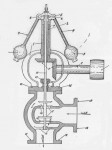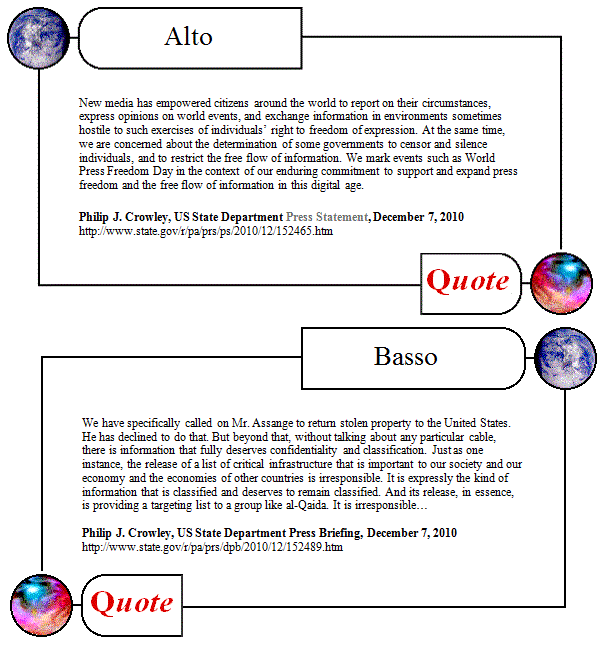Rights talk pervades the litigation over California’s Proposition 8. The defenders of Proposition 8 point out that the Supreme Court has never recognized a right to same-sex marriage. Indeed, in 1972 the Court said that such a claim doesn’t even raise a substantial federal question. On the other hand, the opponents of Proposition 8, using the old trick of formulating a right at higher level of abstraction, claim that they are vindicating the right to marry, which the Supreme Court has recognized as a fundamental right.
A right that’s overlooked in the whole discussion is the right to self-government, a right recognized in the Declaration of Independence and in the California Constitution, which says, “All political power is inherent in the people. Government is instituted for their protection, security, and benefit, and they have the right to alter or reform it when the public good may require.” Cal. Const. art. II, §1. This right is contracted to extent the courts command governments to expand the right to get a marriage license beyond that authorized by the people.
The voters of California began exercising their right to alter or reform the government as it relates to marriage in 2000, when they adopted a proposition to ensure that the state legislature couldn’t repeal the California Family Code’s restriction of marriage to opposite-sex couples. The proposition added this provision to the Family Code: “Only marriage between a man and a woman is valid or recognized in California.” Only marriage and nothing else? A lease between a man and a woman, a contract for sale between a man and a woman aren’t valid or recognized in California? I assume they are. Misplacement of the word “only” is such a common draftsman’s error that nobody notices it anymore, and everybody knew what the proposition was supposed to mean, including the California Supreme Court, which held it violated the California Constitution. In re Marriage Cases, 183 P.3d 384 (Cal. 2008).
The people responded by passing Proposition 8, putting the same unfortunate language in the California Constitution. Ironically they put it in article I, the article entitled “Declaration of Rights.” To be precise, they put it in article I, section 7.5. But the provision is never referred to as article I, section 7.5 or as section 7.5—just Proposition 8—as if it weren’t really part of the constitution.
Attorney General Jerry Brown adopted that attitude in challenging the validity of Proposition 8. He argued that Proposition 8 violated the California Constitution, forgetting that Proposition 8 was the California Constitution. His argument, as well as a more serious argument based on election law, was rejected by the California Supreme Court.
The stakes were raised when Ted Olson, the brilliant solicitor general in the second Bush administration, and David Boies, his former opponent in Bush v. Gore, brought on behalf of disappointed gay couples (“Plaintiffs”) a challenge to Proposition 8 based on the Due Process and Equal Protection Clauses of the Fourteenth Amendment to the U.S. Constitution. In their well-funded lawsuit, Perry v. Schwarzenegger, they sued in federal court Gov. Schwarzenegger, Attorney General Brown, two public health directors, and the clerks of two counties.
All of the defendants except the attorney general took no position on the merits of the case and refused to defend Proposition 8. The attorney general did them one better and conceded the unconstitutionality of Proposition 8. I’m not sure how that fulfilled the attorney general’s duty to prosecute or defend all actions in which a state officer is a party.
The case would virtually have been a collusive lawsuit had the people who proposed Proposition 8 (“the Proponents”) not intervened. At trial, the government defendants put on no case; the Proponents, a weak one. Most of the Proponents’ witnesses decided not to testify because the case was going to be televised. (Intimidation of opponents has been a hallmark of the gay marriage movement.) “Proponents’ evidentiary presentation was dwarfed by that of the plaintiffs,” sniffed Vaughn Walker, the presiding judge.
After a long trial, Judge Walker issued a long opinion. There he quarrels with the Proponents’ experts and gives their opinions little or no weight but enthusiastically embraces the opinions of the Plaintiffs’ experts.
That selectivity led to Judge Walker’s notorious findings of fact. Eighty of them. Some are just sloganeering (“Proposition 8 places the force of law behind stigmas . . . (#58); “Proposition 8 perpetuates the stereotype . . .” (#67)). Some are awfully subjective “facts,” while others aren’t facts at all. Number 61 says, “Proposition 8 amends the California Constitution to codify distinct and unique roles for men and women in marriages.” That’s a matter of law not fact, and it’s patently false on the face of the provision. In number 77, he lurches into theology: “Religious beliefs that gay and lesbian relationships are sinful or inferior to heterosexual relationships harm gays and lesbians.” Whatever truth there may be to this “fact,” the federal judge’s disparagement of the religious beliefs of his countrymen provides an ominous glimpse of the religious persecution to come when the new marital regime is combined with human rights ordinances.
With his findings of fact in hand, Judge Walker careened through some conclusions of law and then, looking into the mirror that is the Fourteenth Amendment, found Proposition 8 unconstitutional.
Of course, the government defendants did not appeal. That was to be expected, but it created a problem for the Proponents. The Proponents appealed, claiming that they had standing to appeal just as state legislators do if a law they passed is struck down. After hearing an hour’s worth of argument on standing and another hour’s worth on the merits, the U.S. Court of Appeals for the Ninth Circuit issued earlier this month a certified question to the California Supreme Court asking it whether California law gives the official proponents of an initiative an interest or authority “to appeal a judgment invalidating the initiative, when the public officials charged with that duty refuse to do so.”
The Ninth Circuit wondered whether the governor “may, consistent with the California Constitution, achieve through a refusal to litigate what he may not do directly: effectively veto the initiative by refusing to defend it or appeal a judgment invalidating it, if no one else—including the initiative’s sponsors—is qualified to do so.”
Judge Reinhardt wrote separately to scold the parties for creating a problem they could have avoided. The governor and the attorney general could have eliminated the problem if either “had defended the initiative, as is ordinarily their obligation.” The Plaintiffs sued the clerks of only two of California’s fifty-eight counties and didn’t serve the rest with Judge Walker’s ruling. And the Proponents, for their part, could have gotten another clerk to intervene on their side. The judge declined to speculate on motives.
But one doesn’t have to speculate long to suspect that Plaintiffs’ counsel carefully restricted the defendants they sued in order to win an unopposed judgment and to shelter that judgment from appellate review. It would be truly extraordinary if a highly controversial case of great public significance could be rigged so that there was standing to conduct a trial but not an appeal.
If the Proponents survive the objections to their standing, they face two big problems on the merits. First, Proposition 8 leaves untouched California’s domestic partnership laws, which give same-sex couples the rights and duties of marriage but withhold the name of marriage, the “honorific designation,” as Judge Reinhardt called it. What that shows, according to the Plaintiffs, is that the only purpose of Proposition 8 is to insult gays and to label their relationships as inferior. They argued that since California allows domestic partnerships, it cannot claim that any substantial harm could come from allowing same-sex marriages because nothing of substance would change. If that’s true, then the benefits the state is supposed to derive from same-sex marriages, like an increase in adoptions, are also insubstantial, and the benefits that same-sex couples would derive are entirely sentimental.
Clearly, states considering domestic partnerships as a compromise should beware that they proceed at their peril.
Second, none of the advantages the Proponents put forward for heterosexual marriage seem to be threatened by homosexual marriage. Those advantages can be summarized like this. Because heterosexual couples have a natural ability to procreate, stabilizing their relationships in the institution of marriage benefits the couple, their children, and society. Maybe so, but, Judge Walker and the Plaintiffs triumphantly ask, how does excluding gays from that institution preserve heterosexual marriages or encourage heterosexuals to become monogamous and get married?
A philosophical answer to that question has been proposed recently, but not by the Proponents, who struggled with it. Finally, in the last few minutes of his rebuttal Charles Cooper, Proponents’ counsel, may have come up with a legal answer when he quoted from Johnson v. Robison, where Justice Brennan wrote, “When, as in this case, the inclusion of one group promotes a legitimate governmental purpose, and the addition of other groups would not, we cannot say that the statute’s classification of beneficiaries and nonbeneficiaries is invidiously discriminatory.” 415 U.S. 361, 383 (1974).
This turns the tables on the advocates of same-sex marriage, who always insist that their opponents prove a rational basis for subtracting same-sex couples from the institution. Robison suggests that isn’t the question: the question is whether adding same-sex couples to the institution promotes the legitimate governmental purpose that heterosexual marriage promotes. The Proponents could safely say that it doesn’t. The state has a legitimate interest in stabilizing relationships that have a biological tendency to produce offspring. Thus, the state has a rational basis for formalizing those relationships that it does not have for formalizing same-sex relationships.
Since the Proponents failed to demonstrate how allowing gays to marry damages heterosexual marriage, the argument I’ve suggested here should be given more prominence as the case proceeds, if anyone is left standing to raise it.

